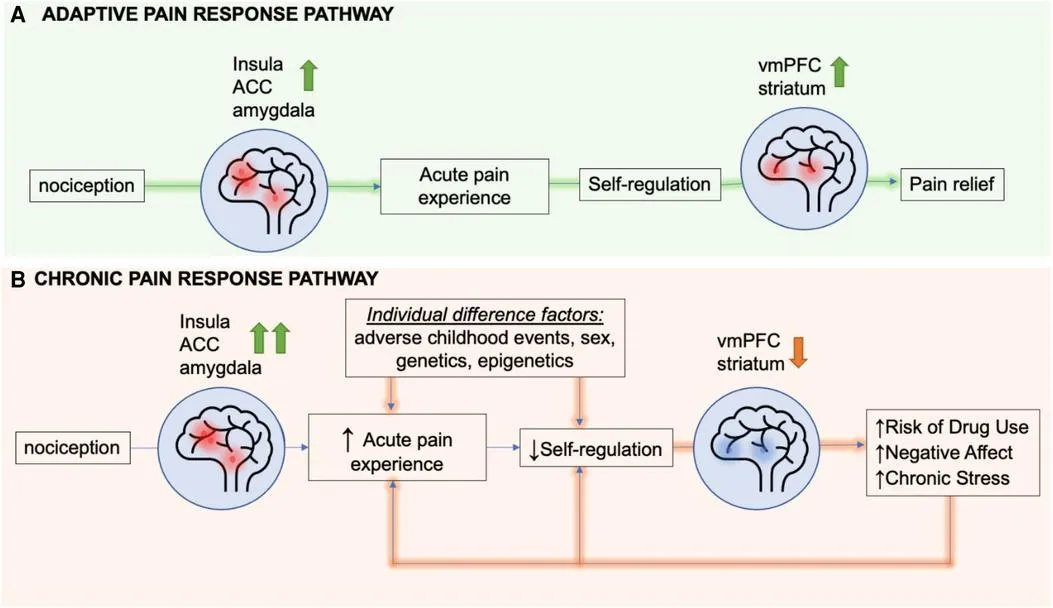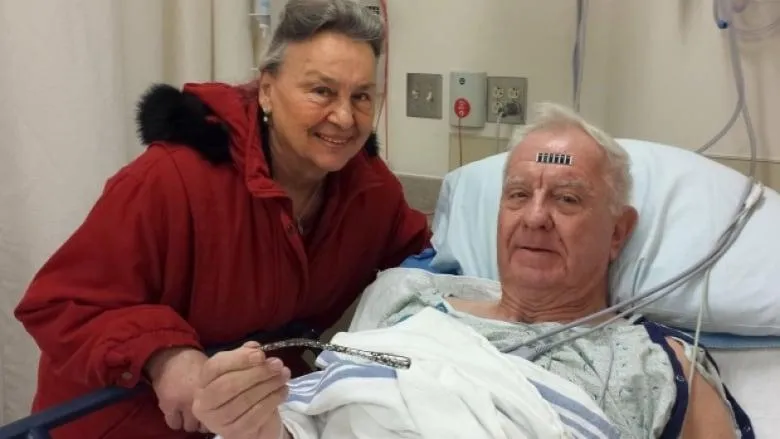The Weirdness of Pain
Katrina Borthwick - 26th June 2023
Reading some of the latest research on chronic pain management led me down a rabbit hole of further reading, and the discovery of just how damn weird and counterintuitive pain is.
I can totally see why pain management has ended up being targeted by hucksters and charlatans of all varieties. There is fertile ground for anyone offering explanations or easy solutions, and plenty of people may not be getting the results they expect from conventional medicine.
I’m fortunate in that nobody in my household suffers from chronic pain, but like most others in their forties I’m quite capable of horribly injuring myself getting out of bed, or you know, turning my head one inch to the left. It’s an area I want to understand more.
First, I’ll talk about the recent research that got me started. Then I will look at some weirdness about pain, and strange causes of pain. Finally, I will look at why it’s very rarely ‘all in your head’.
Pain meds with a side effect of pain
On 23 June, researchers published a paper looking into the link between chronic stress and chronic pain. They found overlapping neural circuits involved in the regulation of both. A part of the brain called the ventromedial prefrontal cortex (VmPFC) is necessary in self-regulation of pain. The research supported the position that factors known to increase the risk of developing chronic pain - like chronic stress - do so by contributing to VmPFC dysfunction. These findings suggest that higher levels of adversity and chronic stress may sensitise people so they have a greater response to pain, while at the same time compromising the self-regulation of the pain.
But, get this. Chronic pain is most commonly treated with opioid painkillers. However, self-regulation of pain relies on neural mechanisms involved in adaptive coping, which don’t get a workout when opioids are in the system. Using opioids on an ongoing basis seems to simultaneously increase the sensation of pain through sensitisation, while at the same time inhibiting the ability to self-regulate pain. Sound familiar? Yes, the opioids are having a similar effect on pain self-regulation to stress, and are potentially creating a feed forward cycle that worsens, rather than reduces, the experience of chronic pain.
The painkillers are making the pain worse.
Recent work has shown the effectiveness of mindfulness-based stress reduction, acceptance and commitment therapy (ACT), and cognitive behavioural therapy, in chronic pain treatment. And the research is suggesting these alternatives need serious consideration.

Weirdness
Yesterday, I took both my girls to get their meningococcal vaccines. My 5-year-old was stuck to her iPhone and seemed oblivious to it all. My 3-year-old repeatedly announced VERY LOUDLY in her best stage voice on the way there, in the waiting room, and in the nurses station, that she does not like shots, and there was much screaming and tears. This was quickly remedied by the generous application of a post traumatic ‘it must be yellow’ lollipop, and a star sticker with the smiley face on it.
It turns out needles really do hurt less if you don’t look, and for those without kids to vaccinate, there is research to prove it. So, whether it is just a shot or something more serious, don’t look.
In the same vein, it may not necessarily matter how serious the problem is if you aren’t paying much attention to it or don’t notice it. The pain doesn’t always track with how bad it is. Remember that teensy splinter that drove you insane with pain until it was pulled out, or that tiny burn on your finger from the grill that stopped you sleeping? Well, Arthur Lampitt managed to get a 1963 Thunderbird turn signal embedded in arm for 51 years and didn’t notice it or feel any pain until it started to corrode and cause some swelling – yes, that’s the foot long metal rod sticking out of the steering wheel. I have a picture…

In other weirdness, magnifying a limb with chronic pain makes the pain and swelling worse when the person looks at it. Minifying (yes this is a real word and means the opposite of magnifying) has the reverse effect. Although the jury is out on how to apply this practically.
Being in love (truly) and holding hands reduces pain in experiments. So perhaps you could try that instead. Squee!
https://www.ncbi.nlm.nih.gov/pmc/articles/PMC4074230/ , https://www.ncbi.nlm.nih.gov/pmc/articles/PMC5468314/
Related to the placebo effect, our expectation of pain plays a big role in how we experience it. If we see blood (or what we think is our blood) then we can feel serious pain enough to be admitted to hospital – but if you have ever fed a kid a little bit too much beetroot, you know things are not always as they appear.
One theory is that pain is a conditioned response to stimuli, like blushing – we can’t stop it. Some chronic pain might be a learned response to things that shouldn’t hurt. People have shown pain response to rubber hands that they thought were their own being pricked. This is because they have learned from life experience that poking sharp things in our hands invariably hurts.
Our expectation of pain also has medical outcomes. If we think we are going to experience more pain and not do as well in response to a treatment, then the research shows that on average this is true.
The placebo effect is the reverse of this. Where someone is convinced something will work, they are more likely to experience pain relief.
Strange causes of pain
If you are experiencing a strange pain, there is always the temptation to google it. Please DO NOT do this. The internet will tell you have cancer. This will stress you out and, as we have seen, the research shows that you will hurt more. I am listing some weird causes of pain below – but they probably don’t apply to you so ….put away your phone!
You are doing nothing at all - Staying in one position, just a normal comfortable position, for a period of time, can cause severe pain. Whyyyy?
Complex regional pain syndrome - this causes extreme pain, usually in a limb, and usually following some relatively minor tissue damage like a minor cut or even an insect bite. Most pain “sensitisation” — lowering the pain threshold — is a normal, temporary reaction to injury. You cut your finger and the tissue around the cut is much more delicate while it heals. But it turns out you can get stuck that way, and feel pain more forever.
You are inflammaging (a real word) – also known as metabolic syndrome associated with poor fitness and obesity, the biological precursor to diabetes and heart disease.
Your pain signal system is messed up - “Neuropathic” pain is the ultimate false alarm: pain caused by trouble with the nervous system itself.
You feel your nerves more – some people have a biological vulnerability to feeling trapped nerves more than others, and then they get a trapped nerve.
You are lonely – research shows loneliness increases vulnerability to chronic pain.
Post infection syndromes – a reaction to the molecules produced while infected. Some examples are: multiple sclerosis following the Epstein Barr virus, post Lyme disease, and long COVID.
Medication-overuse headache – if you take painkillers all the time, it’s possible to pre-empt the production of your body’s own pain-fighting molecules. Endorphin production, for example, will drop.
It’s (probably) not ‘all in your head’
Most ‘weird’ pain is chronic. Pure ‘all-in-your-head’ chronic pain is probably quite rare.
The linkage between psychological factors and the physical causes may degrade or completely disappear over time, but it almost always comes from somewhere. Pain has evolved to be a pretty reliable and consistent warning system that our body is damaged or in danger. If it didn’t work well, we’d die a lot more.
Sensitisation is probably a big factor in most chronic pain conditions that seem disconnected from any cause, like fibromyalgia, irritable bowel syndrome, or complex regional pain syndrome. Sensitisation makes things hurt more than they should.
Even the most psychologically caused chronic pain is probably triggered by something – illness, injury, perhaps something forgettable or minor. The systems perspective on pain suggests some chronic pain is probably an emergent property of many stresses and poor health and fitness, with no specific cause. No matter the cause, the pain is still very real and, as we have seen, pain is weird.
So, most pain won’t be ‘all in the head’, but it can be ‘amplified greatly by your head’ in ways you cannot easily control. We amplify pain substantially as a consequence of stress, anxiety or fear. No matter what self-help books may say, it’s not really possible to ‘think pain away’ - but thankfully we can change our circumstances and lower the volume of the pain.
When we are looking at people using alternative treatments, and people complaining of chronic pain, I find a basic understanding of how pain works, and how weird it is, to be helpful.